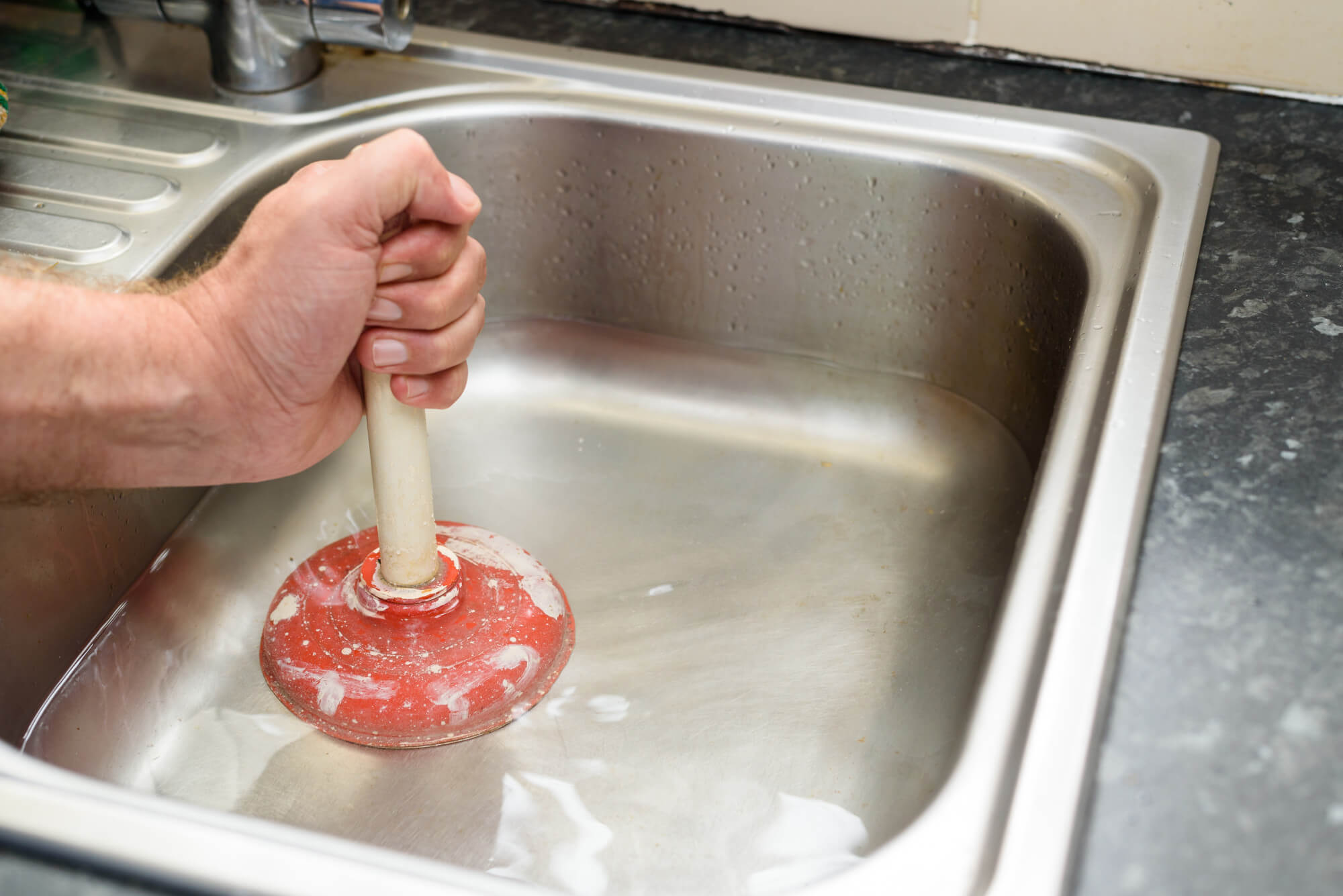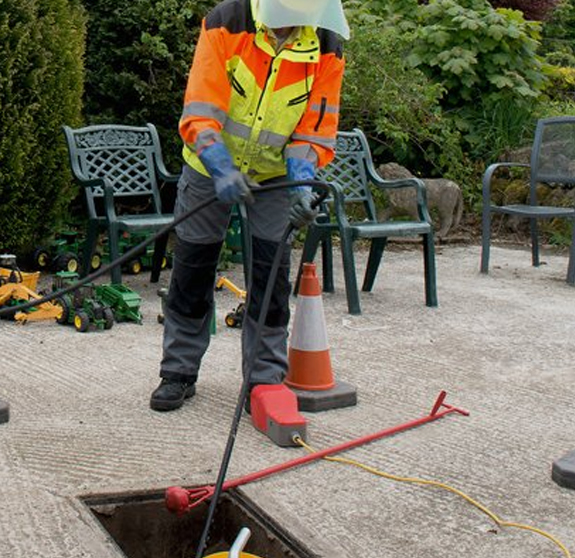Actions for Managing a Blocked Drain Prior to Reaching out to Professional Plumbers
Actions for Managing a Blocked Drain Prior to Reaching out to Professional Plumbers
Blog Article
Nearly everybody has his or her own theory in relation to Some easy tips to fix blocked drains.

Introduction
Taking care of a blocked drainpipe can be a frustrating experience, interfering with everyday tasks and possibly triggering damages to your property. Nonetheless, prior to connecting to plumbing professionals, there are actions you can take to address the problem yourself. In this overview, we'll check out do it yourself remedies and safety nets to deal with an obstructed drainpipe efficiently.
Determining the Issue
The first step in resolving an obstructed drainpipe is identifying the signs. Slow-moving drainage, gurgling sounds, foul odors rising from drains, or water backing up prevail indicators of an obstructed drain. Recognizing these indicators early can assist stop additionally problems.
Typical Sources Of Obstructed Drains
Recognizing the elements that add to drain obstructions is necessary for effective resolution. Usual culprits include hair, soap scum, grease, food debris, and international things like sanitary products or paper towels. Tree roots invading below ground pipes can also cause significant blockages.
Do it yourself Solutions
For minor blockages, a number of DIY options can be effective. Pouring boiling water down the drain can assist dissolve oil and debris. Sodium bicarbonate and vinegar or a combination of salt and baking soda can serve as all-natural cleansers. Making use of a plunger or pipes snake to remove obstructions is an additional alternative.
Tools and Tools
Having the right devices accessible can make DIY drainpipe cleansing much more effective. A bettor is a functional device for removing blockages in sinks, commodes, and showers. A plumbing snake or auger can get to deeper blockages, while drainpipe cleansing chemicals can be made use of carefully for persistent blockages.
Safety nets
To avoid future clogs, embracing safety nets is essential. Set up drainpipe guards or filters to capture hair and particles before they go into the pipes. Frequently flush drains with hot water to dissolve oil build-up, and prevent throwing away oil or strong waste down the tubes.
When to Call a Specialist
While do it yourself options can fix small clogs, certain indications indicate the demand for specialist help. Persistent obstructions, foul odors despite cleaning efforts, or multiple drains supporting at the same time are red flags that warrant professional treatment.
Choosing the Right Plumbing Solution
When picking a plumbing service, consider factors such as experience, licensing, and consumer evaluations. Choose a respectable plumbing professional with a track record of high quality workmanship and clear rates methods.
Cost Considerations
The cost of professional drainpipe cleaning services can differ depending on the seriousness of the obstruction and the plumber's prices. Request quotes from numerous service providers and inquire about any additional charges to make sure transparency and stay clear of shocks.
Safety and security Measures
When attempting DIY drainpipe cleaning, prioritize safety. Wear safety gloves and glasses to avoid contact with unsafe chemicals or bacteria. Never mix different drainpipe cleaning items, as this can create hazardous fumes.
Instance Studies
Real-life instances highlight the effectiveness of DIY services and the importance of prompt professional treatment in settling drain blockages.
Final thought
By complying with the ideas detailed in this overview, you can efficiently tackle obstructed drains and avoid future plumbing concerns. Whether selecting do it yourself options or looking for specialist help, punctual activity is key to maintaining a healthy plumbing system and maintaining the honesty of your home.
9 Ways You Can Clear a Blocked Drain
Blocked Drains from Hair
We’ve seen it all before, a build-up of hair that’s leads to a clogged drain. Most times it’s a moderately easy task to simply ‘remove the hair’, but if it’s not cleared up straight away – it can cause a lot of issues down the line.
Hair falling off the body in the shower or while getting ready over the sink and in the bathroom is one of the most common causes of blocked sinks and drains. But whilst it’s a common problem for many homeowners, there are ways you can fix your drain and put a long-term solution in place.
How to Fix Blocked Drains from Hair?
What to do: Small amounts of hair can be removed by pulling it out with gloved hands to avoid it getting worse. Drain cleaning devices such as drain spiders can also be purchased to help remove the hair from the drain. However, it’s important to be careful as some devices and cheap hair removal chemicals can make the problem worse.
It’s important to remove the hair before it gets clogged into the entry of the drain pipes. If you’re unable to reach the hair or the devices aren’t working as intended, it’s time to speak to a blocked drain specialist.
Blocked Drains from Plants and Dirt
Natural debris like trees, shrubs, dirt and leaves can be an issue for water drains, especially after spring and autumn. Your regular garden and drain maintenance that keeps the outdoor area looking great is also essential to the productivity of your water drains and pipes.
Leaves aren’t the only culprit, however – tree roots are notorious for growing underneath in search of water and as a result, will usually head straight to your drains.
How to Fix Blocked Drains from Plants and Dirt?
What to do: To prevent plants, leaves and dirt from blocking the drains, keep the outdoor area clear of fallen leaves and debris. If this mess is left long enough, it will cause your drains to become severely blocked.
Keep your trees well-watered so they are less drawn to the drains as a source of moisture and stay away from clogging plants where possible; like willow trees, oak trees, magnolias, boxwood shrubs, palm trees and gum trees.
While ensuring your yard is free from leaves and dirt is a great way to prevent build-up, sometimes the real issues lay under the surface. Tree roots can crack your drain pipes beneath your home – causing severe blockages and leaks. Specialist drain cleaning equipment can be used to clear the blockage and pipe relining technology can provide a long-term structural repair.
Blocked Drains from Grease Build-up
Like hair in the bathroom, grease and fat will build-up in the kitchen sink over time. These fatty substances are a very common cause of blocked drains and pipes and can be a nuisance to clear out.
Any grease waste or fatty substance that is washed down the sink will stick to the inside of the pipes and eventually build up to a point no liquid can pass through. It’s important to be aware that this grease doesn’t leave the pipes as easily as you would expect.
How to Fix Blocked Drains from Grease Build-up?
What to do: Avoid washing these fatty ingredients down the affected drain as much as possible. Grease that’s washed down the drain will cool and harden in the pipes.
A smart way to prevent this build-up of grease is to start collecting all glass jars that you purchase at the supermarket. Then, instead of pouring this oil or kitchen grease down the drain, put it in the small glass or plastic containers to discard with your garbage.
Blocked Drains from Toiletries
As more people get into the habit of disposing of toiletries down the drain, bigger problems are being caused in our pipes and sewers. Nappies and baby wipes are the two common issue items known to block drains after being flushed down the toilet.
Such items become immersed with water, they absorb the moisture and enlarge, quickly blocking access to water drains and pipes.
How to Fix Blocked Drains from Toiletries?
What to do: This way of disposing of toiletries is dreadful for the environment and everyone should be encouraged to dispose of toiletries the right way. In the home, these items should be taken out with your garbage, just as people should make use of the designated bins when using public changing rooms and toilets.
Blocked Drains from Heavy Rain and Storms
Throughout the wet season, drains will experience floods of water because of heavy rainfall. Because drains aren’t really designed to take the full impact of this weather, water build-up can be common in many Perth households.
When there is an overflow of rainwater in gutters and downpipes, there’s a good chance there’s a blocked drain that needs to be cleared out.
How to Fix Blocked Drains from Heavy Rain and Storms?
What to do: Ensure gutters and outdoor drains are cleaned during the wet season to prevent a build-up of leaves which will cause a bigger blockage. Problems caused by heavy rain and storms will usually require a plumber to help unclog and assist with the wastewater removal. If this is the case, contact them as soon as possible to prevent further build-up and potential flooding in your home and yard.

As a keen reader on Some easy tips to fix blocked drains, I thought sharing that piece of writing was worthwhile. Do you know about anybody else who is curious about the subject? Do not hesitate to share it. Thanks a lot for taking the time to read it.
Quote Report this page